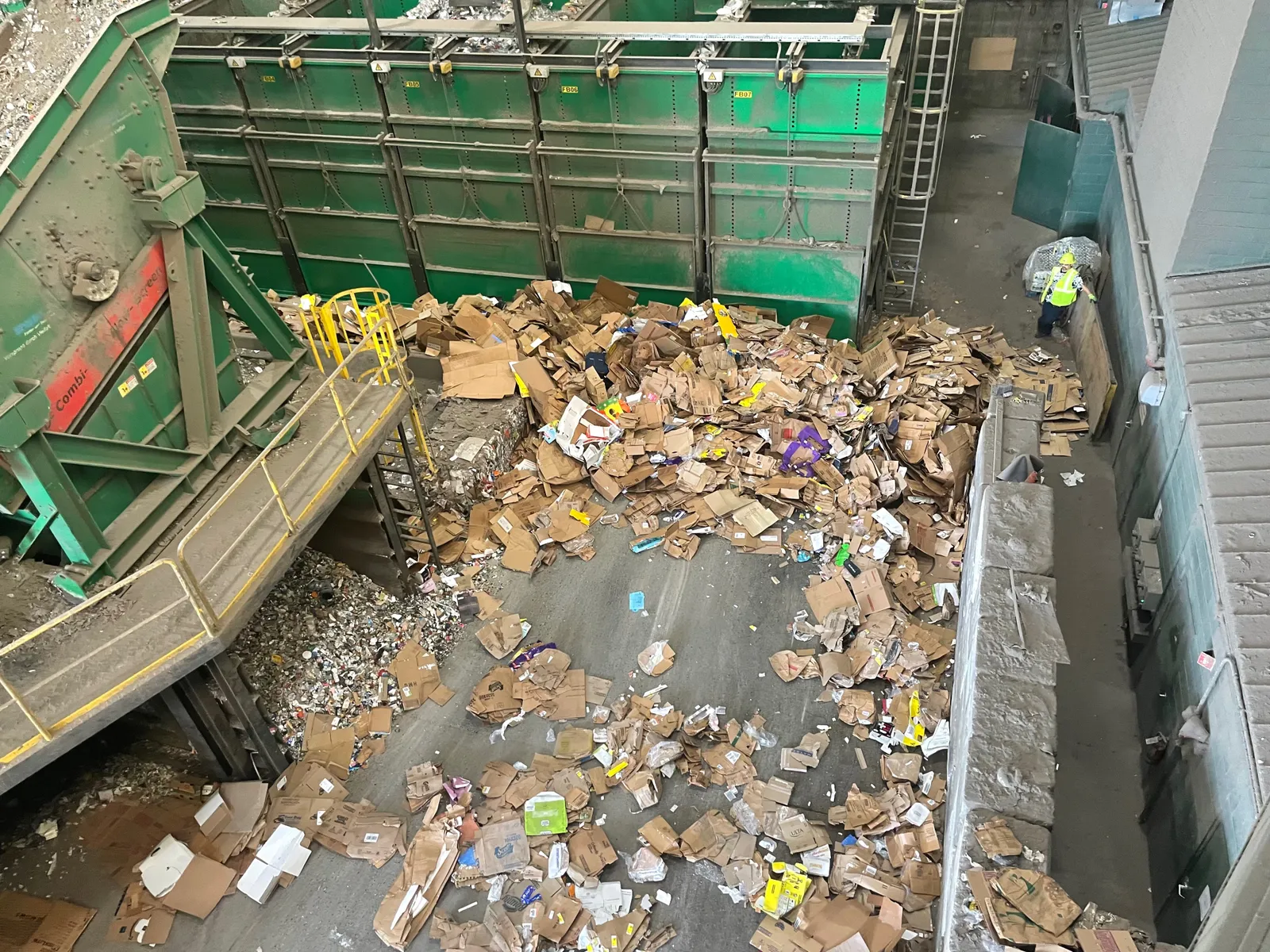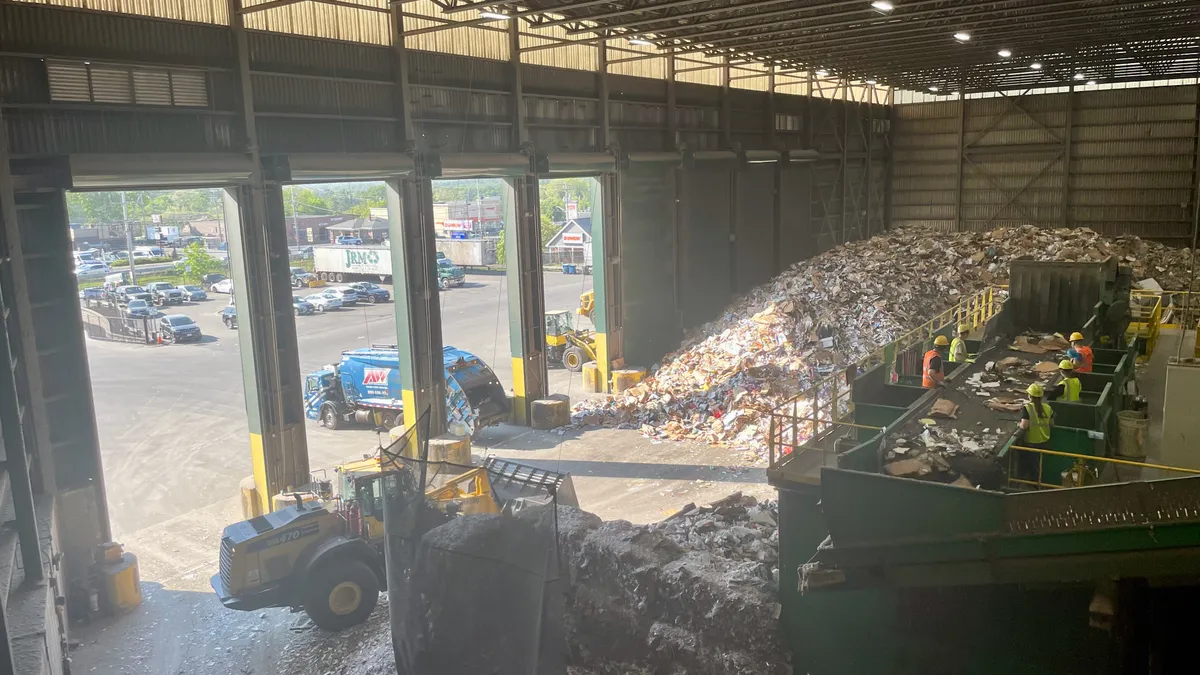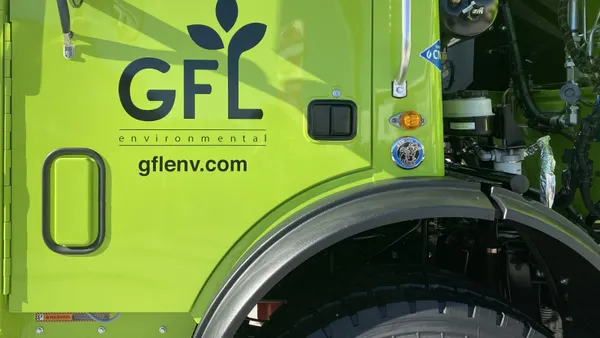Republic Services’ 2022 acquisition of JRM Hauling & Recycling in Massachusetts garnered plenty of local attention for the opportunity to expand hauling operations, but it also included a rare regional asset — a MRF. Over the past year, Republic said it has worked to upgrade operations and boost material quality at the facility.
Prior to the deal, which closed in April 2022, Republic’s only other active MRF in the area was a small dual-stream facility in Brockton. The JRM facility — in Peabody, north of Boston — is a 50,000-square-foot location along U.S. Route 1, near a Republic transfer station.
Waste Dive joined a recent tour to see the facility and learn more about ongoing post-acquisition changes.
The single-stream MRF opened in 2015 as a related business called GreenWorks, backed by the family that owned JRM. The facility was built with equipment from Van Dyk Recycling Solutions. It has capacity to handle upward of 27 tons per hour, or up to 300 tons per day, with two shifts. Excluding supervisors, the MRF currently has 21 people working per shift. They are now unionized with Teamsters Local 25 following the acquisition.
Material currently comes from a mix of municipal contracts, along with commercial accounts and third-party haulers. During the tour, the site was accepting more material than usual due to the temporary closure of a competitor’s Boston MRF after a fire.
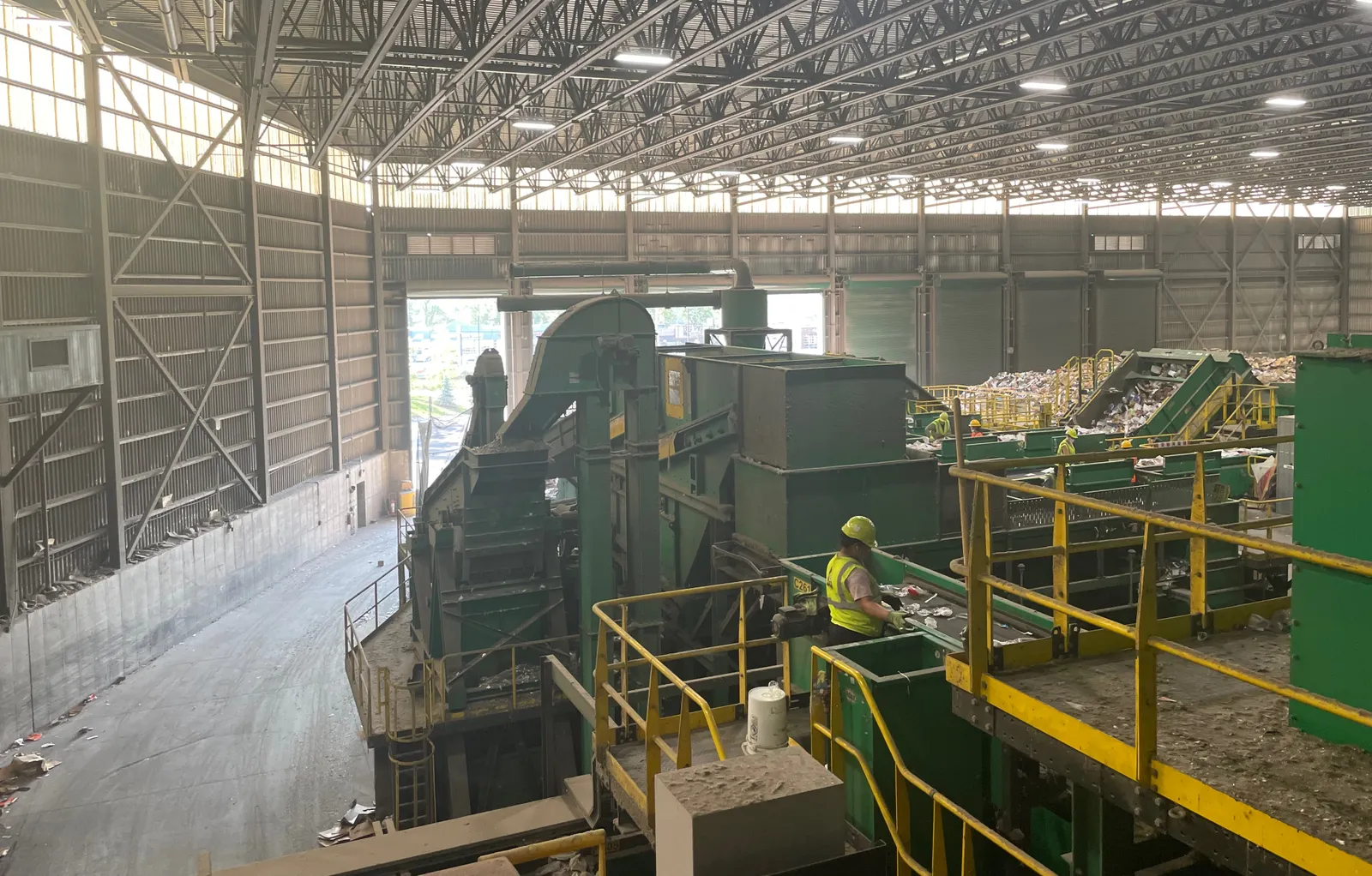
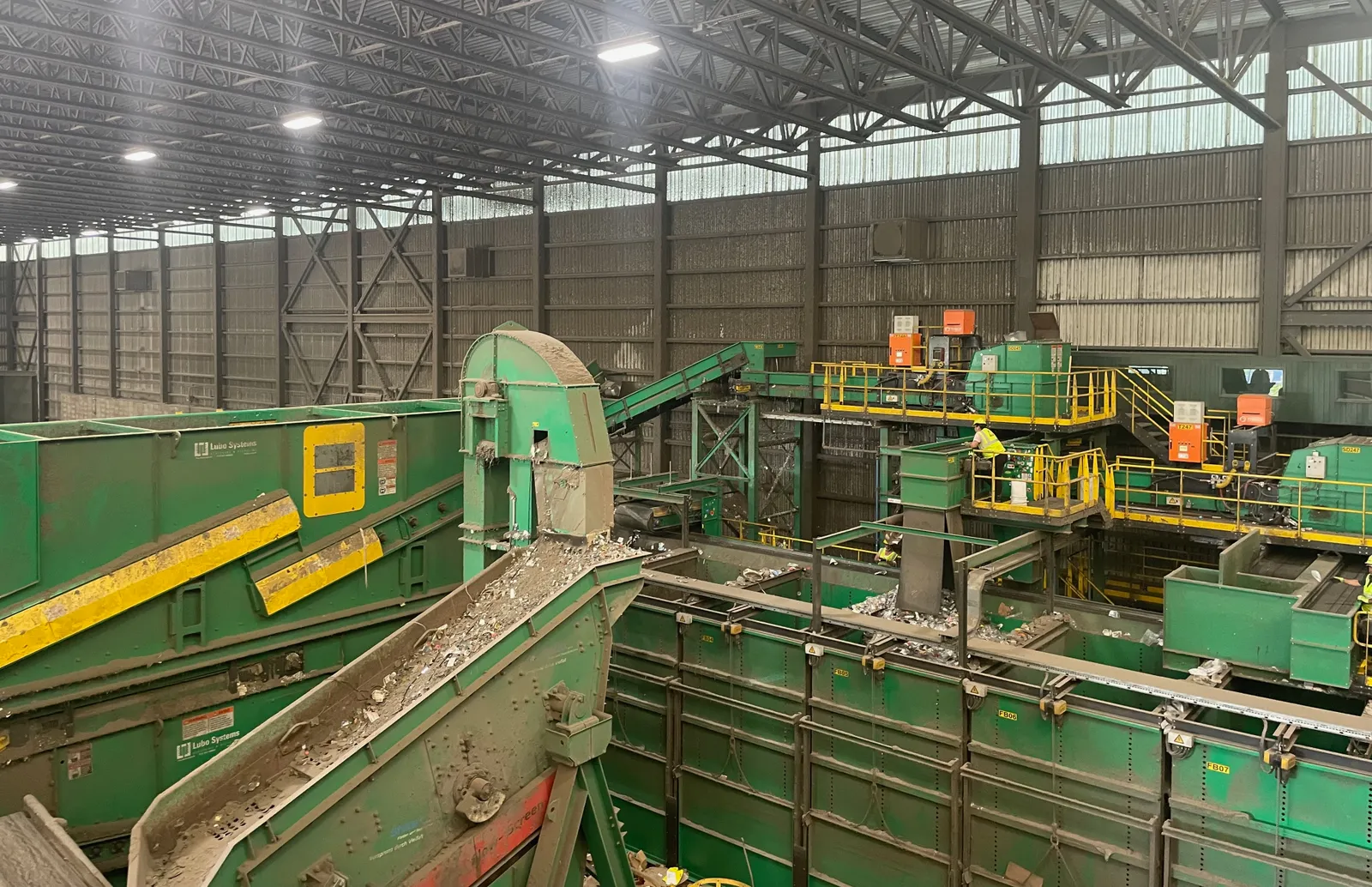
According to Republic, contamination rates averaged around 36% when it purchased the facility. “There were a lot of plastic bags and a lot of problems,” said Gretchen Carey, Republic’s New England sustainability manager, during the tour. That has now come down to a residual rate of around 15% due to customer education and employee efforts, according to the company.
Carey noted that Republic has committed to domestic markets for its plastics and said the company is aligned with the state’s Recycle Smart guidance (which was informed by MRF operators) in terms of what can be accepted for reliable recycling. A report from the Massachusetts Department of Environmental Protection lists the facility as using domestic markets for all materials in 2021 and the first half of 2022 (the most recent data available).
Other post-acquisition changes at the location include new lighting, more regular cleaning and planned equipment investments. The company expects to make replacements and upgrades at the MRF by Q1 of 2024, with a focus on incremental updates rather than robotics, along with planned equipment investments at a C&D recycling facility in Devens, which Republic acquired in 2020.
According to its latest quarterly financial filing, Republic had 72 recycling centers in its portfolio as of March. The industry’s second-largest company reported 2% of its revenue came from “recycling processing and commodity sales” in Q1. That share could potentially rise in the future as Republic starts opening planned secondary plastics recycling facilities or if values for commodities such as cardboard see sustained improvements from a recent slump.
